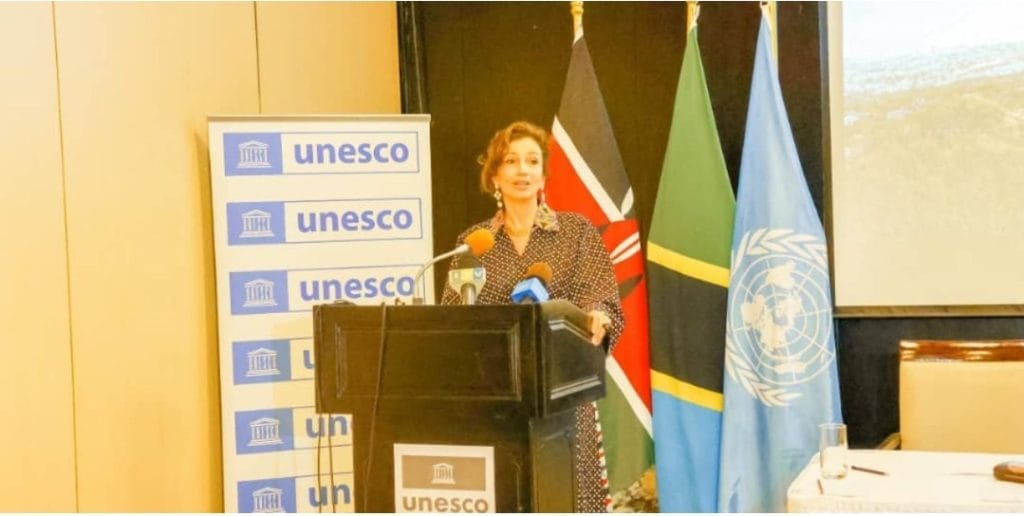The United Nations Educational, Scientific and Cultural Organization (UNESCO) has announced an $8 million (Sh21 billion) initiative to enhance groundwater management in Tanzania and Kenya. The project aims to conserve 400 acres of the Mount Kilimanjaro forest, a vital water source for over two million people.
Speaking at the launch in Dar es Salaam, Tanzania’s Minister of Water, Jumaa Aweso, emphasized the importance of international collaboration in water resource management, aligning with the United Nations Sustainable Development Goal 6, which focuses on clean water and sanitation. He highlighted the Kilimanjaro water conservation project, covering the Rombo and Hai districts, as a successful example of such cooperation.
“This partnership between Tanzania and UNESCO has led to tangible results, including this $8 million international groundwater project. We appreciate the strategic support that has made this initiative possible,” Aweso stated. He also expressed Tanzania’s commitment to strengthening collaboration with UNESCO, which oversees 22 international water sources, to further develop the country’s water sector.
During the recent United Nations Water Conference in New York, Aweso met with UNESCO Director-General Audrey Azoulay to discuss key areas of cooperation, including institutional capacity building for groundwater management, resource mobilization, and climate change initiatives.
Azoulay commended the Presidents of Tanzania and Kenya for their efforts in preserving Mount Kilimanjaro’s water resources. “Water is life, and women play a crucial role in conserving this resource. Kilimanjaro is not only a global natural icon but also an essential water source for communities in Tanzania and Kenya,” she noted.
To raise global awareness of climate change and its impact on the region, UNESCO announced an expedition to Mount Kilimanjaro in August. The mission will include 30 climbers, including young Africans, to highlight the effects of melting glaciers on mountain communities. Tanzania’s Minister for Education,
Science, and Technology, Adolf Mkenda, reiterated the government’s commitment to improving access to clean water in Rombo. “Funds have been allocated to extract water from Lake Chala, but we still have work to do to fully meet the region’s drinking and irrigation needs,” he said.
Meanwhile, Kenya’s Water and Irrigation Minister, Eric Mugaa, reaffirmed his government’s commitment to ensuring access to clean and affordable water for all. However, he acknowledged that challenges such as climate change, urbanization, and competing water demands require innovative solutions.
“The Kenyan government remains dedicated to achieving universal water access by 2030, in line with Sustainable Development Goal 6 and constitutional mandates on water and sanitation,” Mugaa stated. He also noted that Kenya has completed groundwater resource mapping in Tana River, Wajir, and Marsabit counties, with similar efforts underway in Mandera County.
The UNESCO-backed initiative is expected to play a significant role in securing sustainable water access for communities in both countries while reinforcing regional cooperation in water conservation.



